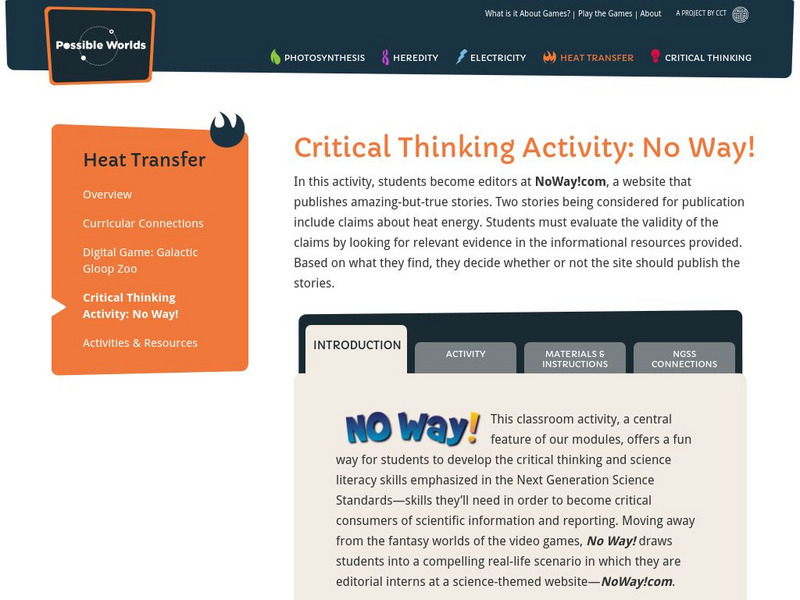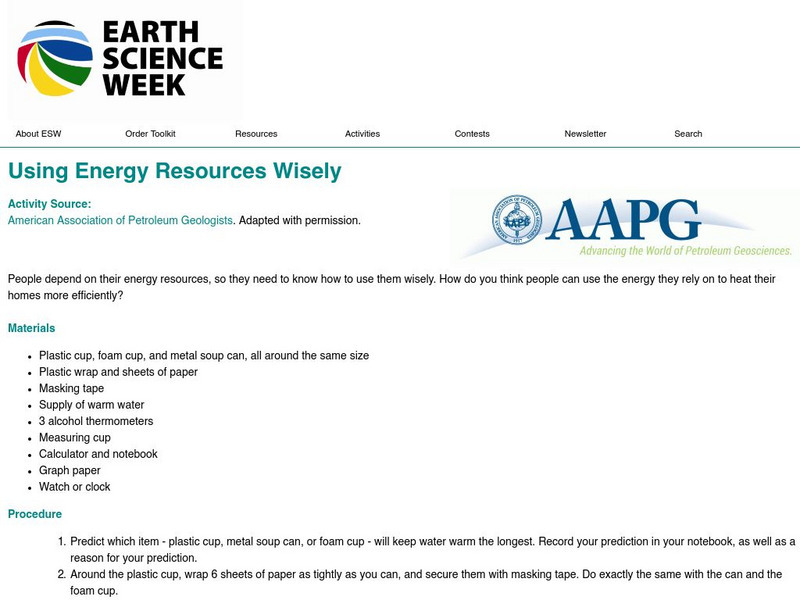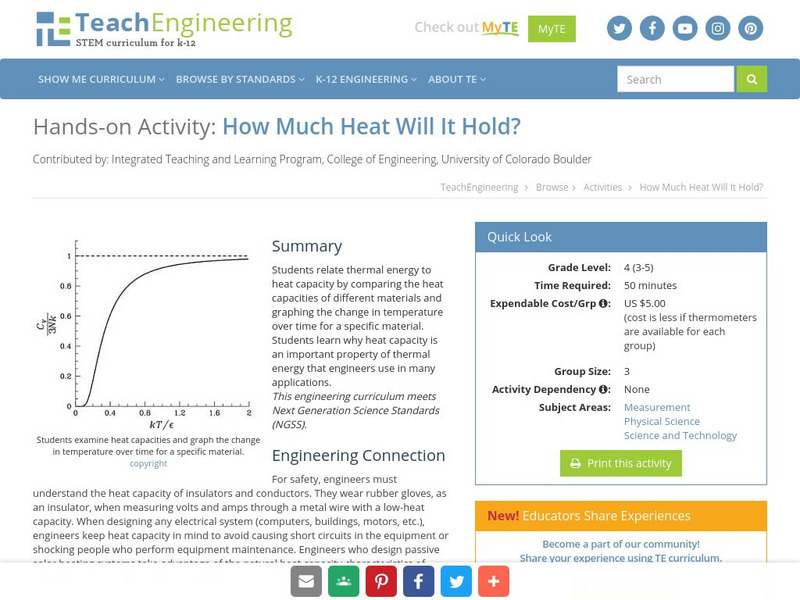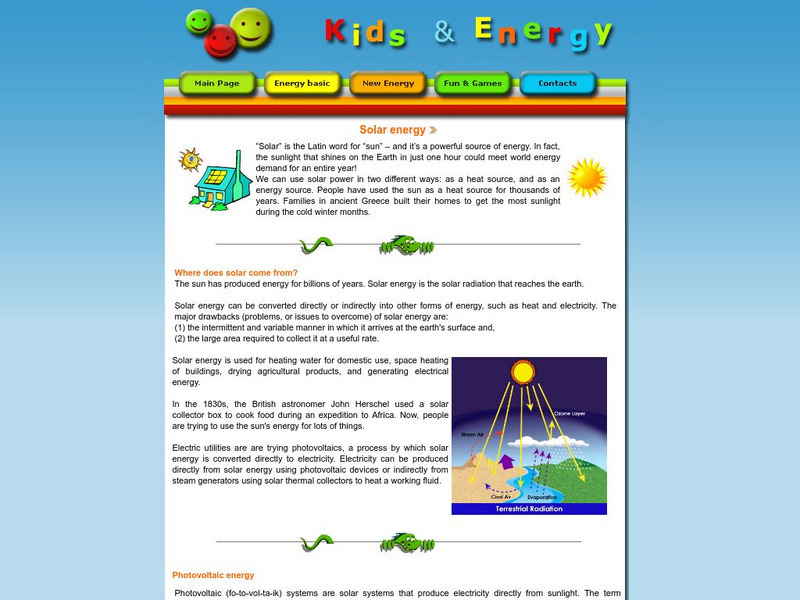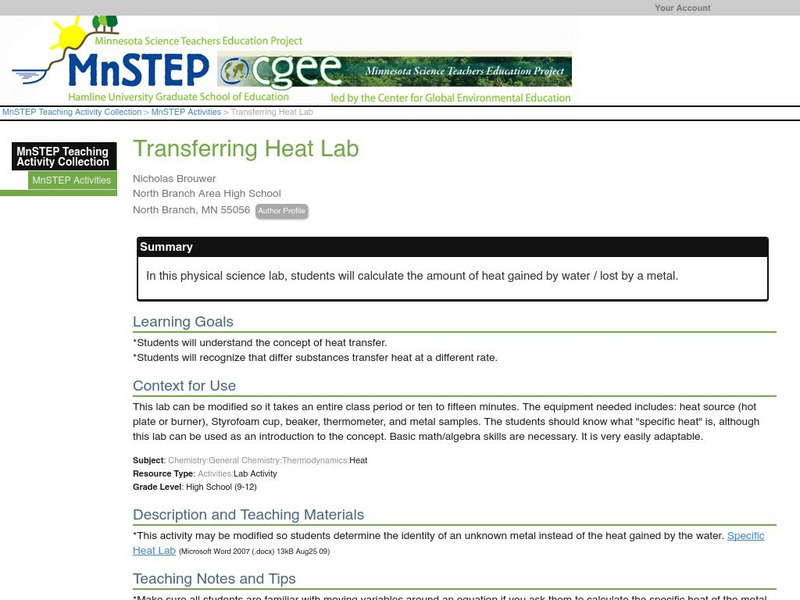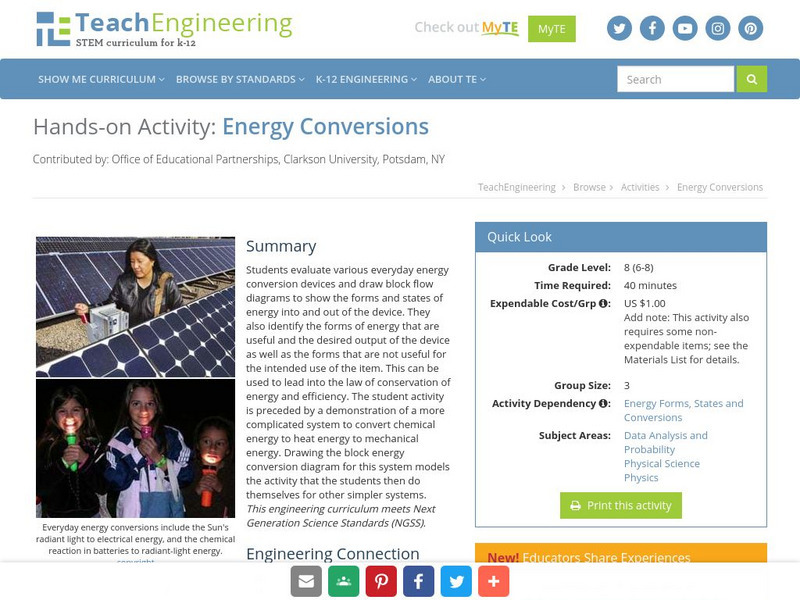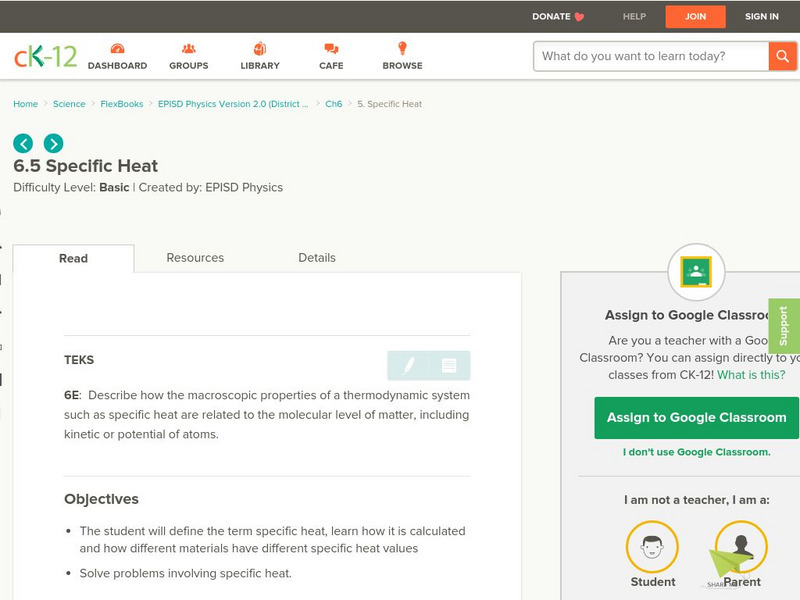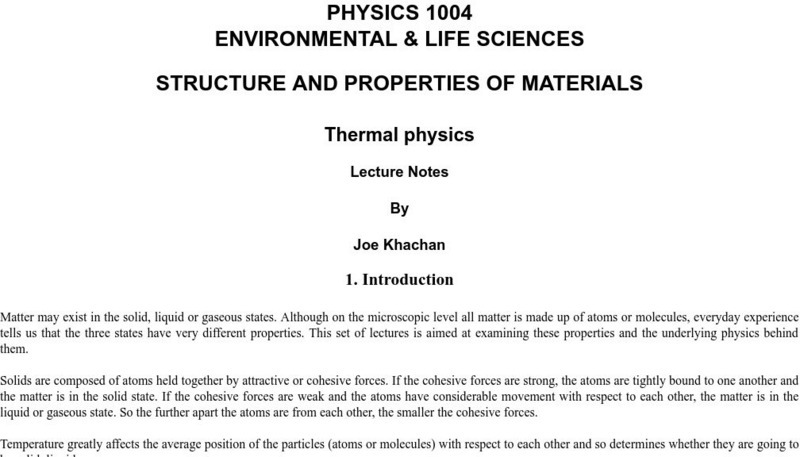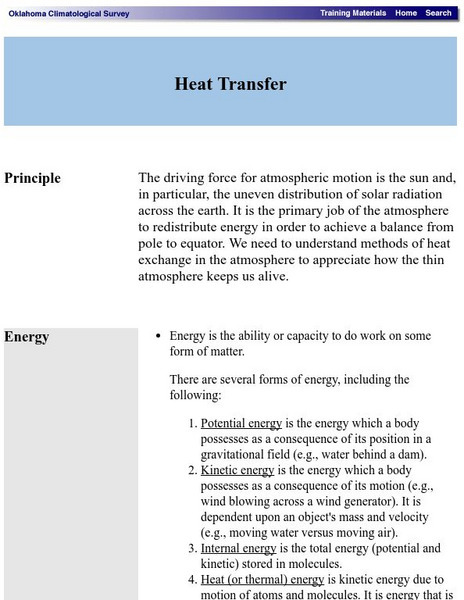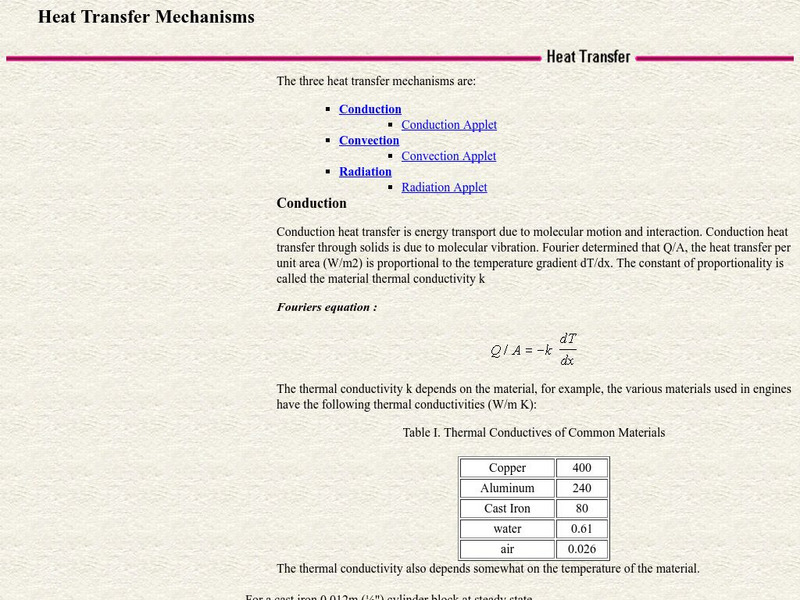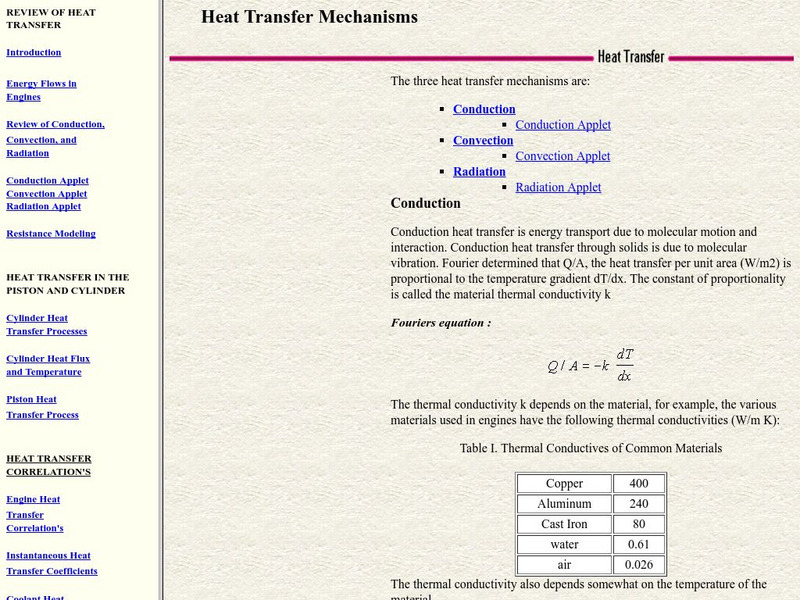Physics Classroom
The Physics Classroom: Thermal Physics: Measuring the Quantity of Heat
Through interactive exercises and illustrated example problems, students learn about specific heat capacity and measuring the quantity of heat.
BBC
Bbc Schools: Ks2 Bitesize: Science: Materials: Heat
A short, illustrated tutorial about how heat energy moves. After reading the material, take a quick quiz to check for understanding.
Education Development Center
Center for Children and Technology: No Way: Heat Transfer
In this heat transfer activity, students become editors for a website that publishes amazing-but-true stories. Two stories being considered for publication include claims about heat energy. Students must evaluate the validity of the...
Wisc-Online
Wisc Online: Heat and Heat Transfer Part 1
Review heat and heat transfer by solving these seven phrases! Then move on to "Heat and Heat Transfer Part 2"
Wisc-Online
Wisc Online: Heat and Heat Transfer Part 2
After completing Heat Transfer 1, review heat and heat transfer by solving these seven terms.
American Geosciences Institute
American Geosciences Institute: Earth Science Week: Using Energy Resources Wisely
Students test which type of material retains heat the longest.
FT Exploring
Ft Exploring: What Type of Energy Is It?
How many types of energy are there? Are there many forms of energy, such as electrical, mechanical, and chemical? Or are there really just two types of energy - kinetic energy and potential energy? Here you can learn about these...
FT Exploring
Ft Exploring: Energy Changes Make Things Happen
Nothing can happen without energy. Here you can learn about the many different ways that energy makes things happen.
TeachEngineering
Teach Engineering: Conduction, Convection, and Radiation
With the help of simple, teacher-led demonstration activities, students learn the basic concepts of heat transfer by means of conduction, convection, and radiation. Students then apply these concepts as they work in teams to solve two...
University of Sydney (Australia)
Thermal Physics Module/heat Transfer 1 [Pdf]
The first of two pages discussing the different forms of thermal energy transfer. Equations expressing the rate of energy transfer by each of the methods are provided and discussed.
TeachEngineering
Teach Engineering: How Much Heat Will It Hold?
Students relate thermal energy to heat capacity by comparing the heat capacities of different materials and graphing the change in temperature over time for a specific material. Students learn why heat capacity is an important property...
Energy for Sustainable Development
Esd Bulgaria: Kids & Energy: Solar Energy
Explains what solar energy is, how it differs from photovoltaic energy, and how it is harnessed to produce electric power for humans.
E-learning for Kids
E Learning for Kids: Science: Titanic Shipwreck: How Does Heat Travel?
David is exploring the Titanic shipwreck. He needs to stay warm down below in the water. Help him learn about heat and temperature.
Science Education Resource Center at Carleton College
Serc: Transferring Heat Lab
In this physical science lab, students calculate the amount of heat transfer between water and a metal.
TeachEngineering
Teach Engineering: Solar Power
In this activity, students learn how engineers use solar energy to heat buildings by investigating the thermal storage properties of some common materials: sand, salt, water and shredded paper. Students then evaluate the usefulness of...
TeachEngineering
Teach Engineering: Energy
Through nine lessons, students are introduced to a range of energy types--electrical, light, sound and thermal-as well as the renewable energy sources of wind, hydro (water) and solar power. Subjects range from understanding that the...
TeachEngineering
Teach Engineering: Energy Conversions
Students evaluate various everyday energy conversion devices and draw block flow diagrams to show the forms and states of energy into and out of the device. They also identify the forms of energy that are useful and the desired output of...
CK-12 Foundation
Ck 12: Specific Heat
[Free Registration/Login may be required to access all resource tools.] Students explore the concept of specific heat, learn how it is calculated, and find out how different materials have different specific heat values.
University of Sydney (Australia)
University of Sydney: Structure and Properties of Materials/thermal Physics
An exhaustive set of "lecture notes" on various topics in thermal physics (including thermal expansion). Explanations are well done and more interesting than most. Includes both a mathematical and conceptual treatment of topics. Humor,...
Georgia State University
Georgia State University: Hyper Physics: Heat Engine Cycle
The heat engine cycle is defined and discussed. So pressure-volume diagrams are introduced and their use in depicting the cycles of a heat engine is demonstrated. Informative graphics are accompanied by reason-filled explanations.
Oklahoma Mesonet
Oklahoma Climatological Survey: Heat Transfer
A discussion from the Oklahoma Climatological Survey of the thermal factors effecting the movement of air masses in the atmosphere. Numerous topics such as methods of heat transfer, latent heat, phase changes (including sublimation and...
Georgia State University
Georgia State University: Hyper Physics: Thermal Expansion
Defines thermal expansion and elaborates on the concept of linear expansion. Provides the equation for linear expansion and includes an interactive JavaScript form which allows the visitor to investigate the relationship between...
Colorado State University
Csu: Heat Transfer Mechanisms
An excellent page from the Colorado State University with a heavy mathematical emphasis. Each form of heat transfer--conduction, convection, and radiation--is defined, compared, and contrasted. Mathematical equations governing the rates...
Colorado State University
Colorado State University: Heat Transfer Mechanisms
An excellent page from the Colorado State University with a heavy mathematical emphasis. Each form of heat transfer--conduction, convection, and radiation--is defined, compared and contrasted. Mathematical equations governing the rates...




